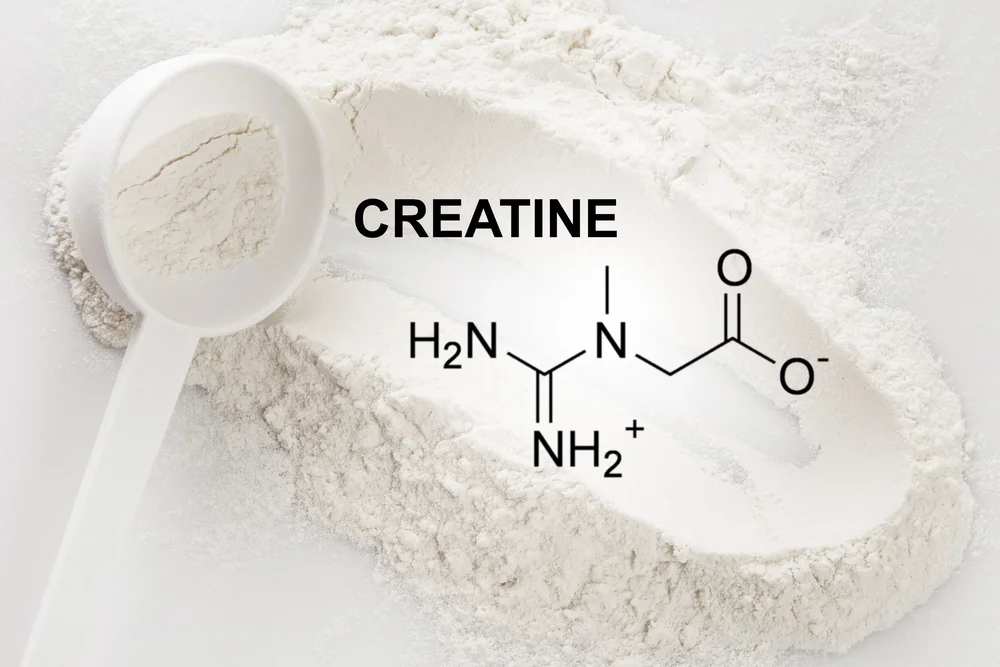Learn About How Creatine Impacts Hair Loss
In the realm of fitness and sports supplementation, few substances have garnered as much attention and controversy as creatine. Widely known for its role in enhancing muscle strength and performance, creatine has become a staple in the routines of athletes, bodybuilders, and fitness enthusiasts worldwide. However, amidst the myriad benefits attributed to creatine supplementation, questions and concerns have arisen regarding its potential impact on hair health. Anecdotal reports and speculation have led to the belief that creatine use may be linked to hair loss, causing confusion and apprehension among users. Understand the complex relationship between creatine and hair loss, examining the scientific evidence, dispelling common myths, and providing insights to help individuals make informed decisions about their supplementation choices.
WHAT IS CREATINE?
Creatine is a naturally occurring compound found predominantly in meat and fish, as well as produced endogenously in the human body, primarily in the liver, kidneys, and pancreas. It plays a vital role in energy metabolism, particularly in the form of adenosine triphosphate (ATP) regeneration, which is essential for cellular energy production. Within muscle cells, creatine is converted into phosphocreatine, which serves as a rapid and readily available source of ATP during short bursts of high-intensity exercise, such as weightlifting or sprinting.

The benefits of creatine supplementation are well-documented and widely recognized within the fitness and sports communities. By increasing intramuscular creatine stores, supplementation can enhance muscle strength, power, and endurance, allowing individuals to perform at higher intensities for longer durations. Additionally, creatine has been shown to promote muscle hypertrophy (growth) by increasing water retention within muscle cells and stimulating protein synthesis, leading to gains in lean muscle mass over time.
Moreover, creatine supplementation has been linked to improvements in exercise performance across various modalities, including resistance training, sprinting, and high-intensity interval training (HIIT). Athletes and bodybuilders often use creatine to boost their training capacity, enabling them to push harder during workouts, recover more quickly between sessions, and ultimately achieve greater gains in strength and muscle size.
Due to its efficacy and safety profile, creatine has gained immense popularity as a dietary supplement among athletes and bodybuilders alike. Countless studies have demonstrated its effectiveness in improving performance and enhancing muscle growth, with minimal adverse effects when used as directed. As a result, creatine has become a staple in the supplement regimens of individuals seeking to maximize their athletic potential and achieve their fitness goals.
THE LINK BETWEEN CREATINE AND HAIR LOSS
Despite the widespread popularity and numerous benefits associated with creatine supplementation, concerns have emerged regarding its potential impact on hair health. Anecdotal reports and rumors have circulated, suggesting a possible link between creatine use and hair loss. Some individuals have reported experiencing hair thinning or shedding while taking creatine supplements, leading to speculation about a causal relationship between the two.
While these anecdotal accounts may raise alarm among users, it is essential to approach the issue with caution and skepticism. The scientific evidence regarding the association between creatine and hair loss remains inconclusive and lacking in consensus. While some individuals may attribute their hair-related concerns to creatine supplementation, other factors such as genetics, hormonal fluctuations, nutritional deficiencies, and stress could also contribute to hair thinning or shedding.
It is crucial to acknowledge the complexity of hair loss and recognize that multiple factors can influence hair health. While some individuals may notice changes in their hair while taking creatine, it is essential to consider other potential contributing factors before attributing the issue solely to creatine supplementation. Additionally, the variability in individual responses to creatine supplementation further complicates the matter, making it challenging to draw definitive conclusions about its effects on hair health.
Given the lack of scientific consensus on this issue, further empirical research is needed to elucidate the relationship between creatine supplementation and hair loss. Controlled clinical studies examining the effects of creatine on hair health, including long-term follow-up assessments, could provide valuable insights into the potential risks and benefits of creatine use in relation to hair health. Until then, individuals considering creatine supplementation should exercise caution and consult with healthcare professionals to make informed decisions about their supplement choices.
SCIENTIFIC EVIDENCE ON CREATINE AND HAIR LOSS
Understanding the potential impact of creatine supplementation on hair health requires a careful examination of the scientific evidence available. While anecdotal reports and rumors have raised concerns about a possible link between creatine use and hair loss, empirical research is essential to clarify this relationship. In this section, we will review the findings of various studies investigating the effects of creatine supplementation on hair health, shedding light on the current state of scientific knowledge in this area.
- The Effects of Creatine Supplementation on Hair Health in Resistance-Trained Individuals: This study found no significant differences in hair loss or thinning between individuals who supplemented with creatine and those who did not. Hair health parameters, including hair density and thickness, remained unchanged throughout the study period.
- Long-Term Creatine Supplementation and Hair Loss: A Retrospective Analysis: This retrospective analysis of long-term creatine users found no evidence of increased hair loss or shedding compared to non-users. Hair loss rates among creatine users were similar to those observed in the general population, suggesting that creatine supplementation does not exacerbate hair loss.
- Creatine Supplementation and Hair Health in Female Athletes: A Prospective Cohort Study: This prospective cohort study investigated the effects of creatine supplementation on hair health in female athletes over a six-month period. Results showed no significant differences in hair loss or thinning between creatine users and non-users, indicating that creatine supplementation did not negatively impact hair health in this population.
- The Influence of Creatine Monohydrate Supplementation on Hair Loss in Male Bodybuilders: This study examined the effects of creatine monohydrate supplementation on hair loss in male bodybuilders. Results revealed no significant differences in hair loss rates between creatine users and non-users, suggesting that creatine supplementation does not contribute to hair thinning or shedding in this demographic.
- Effects of Creatine Supplementation on Hair Health Biomarkers: A Randomized Controlled Trial: This randomized controlled trial investigated the effects of creatine supplementation on biomarkers of hair health, including hair follicle density and diameter. Findings showed no adverse effects of creatine supplementation on hair health parameters, indicating that creatine does not negatively impact hair follicle function or integrity.
FACTORS INFLUENCING HAIR HEALTH
Hair health is influenced by a myriad of factors, ranging from genetic predispositions to lifestyle habits and environmental exposures. Understanding these influences is crucial for maintaining optimal hair health and addressing concerns such as hair loss or damage. In this section, we will explore the various factors that play a role in determining the health and vitality of our hair, providing insights into how these factors can impact hair growth, strength, and overall appearance.

- Genetics: Genetic factors play a significant role in determining hair characteristics such as texture, color, and susceptibility to conditions like pattern baldness or alopecia.
- Hormonal Balance: Hormonal fluctuations, particularly changes in androgen levels, can influence hair growth cycles and contribute to conditions such as androgenetic alopecia or hormonal hair loss.
- Nutritional Status: Adequate intake of essential nutrients such as vitamins, minerals, and proteins is essential for supporting healthy hair growth and maintenance. Nutritional deficiencies can lead to hair thinning, brittleness, and loss.
- Scalp Health: The condition of the scalp, including factors such as oiliness, dryness, and inflammation, can impact hair follicle function and overall hair health. Maintaining a clean, balanced scalp environment is important for optimal hair growth.
- Environmental Exposures: Exposure to environmental pollutants, UV radiation, harsh weather conditions, and chemical agents (e.g., styling products, chlorine in swimming pools) can damage the hair shaft, leading to dryness, breakage, and dullness.
- Stress Levels: Chronic stress can disrupt the hair growth cycle, leading to increased shedding or telogen effluvium. Stress reduction techniques such as meditation, exercise, and adequate sleep can help mitigate the effects of stress on hair health.
- Hair Care Practices: Hair care routines involving excessive heat styling, chemical treatments, tight hairstyles, or aggressive brushing can damage the hair shaft and weaken the hair follicles, contributing to breakage and hair loss. Choosing gentle, nourishing hair care products and adopting protective styling techniques can help maintain hair health.
CONCLUSION
The relationship between creatine supplementation and hair loss remains a topic of interest and debate. While anecdotal reports and rumors have raised concerns about a potential link between the two, scientific evidence supporting such claims is limited and inconclusive. The studies reviewed suggest that creatine supplementation is unlikely to exacerbate hair loss or contribute to significant hair thinning or shedding in most individuals. However, it is essential to acknowledge the variability in individual responses and the need for further research to clarify the relationship between creatine and hair health conclusively. As with any supplement, individuals should approach creatine supplementation with caution and consider consulting with healthcare professionals to make informed decisions about their supplement regimen. Additionally, maintaining overall hair health through a balanced diet, proper hydration, stress management, and gentle hair care practices is crucial for supporting optimal hair growth and minimizing the risk of hair-related concerns.
SHOP FOR HAIR LOSS TREATMENTS


